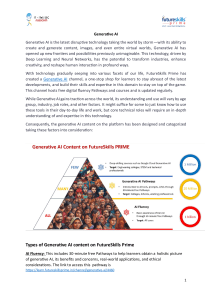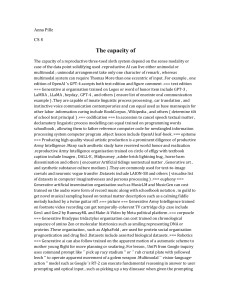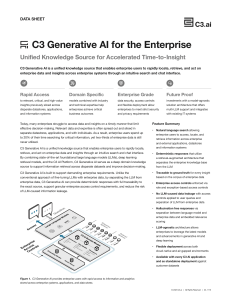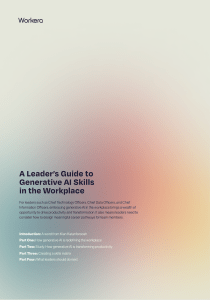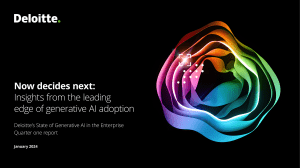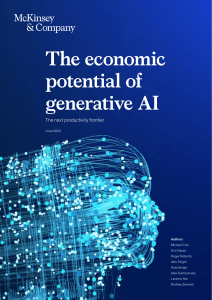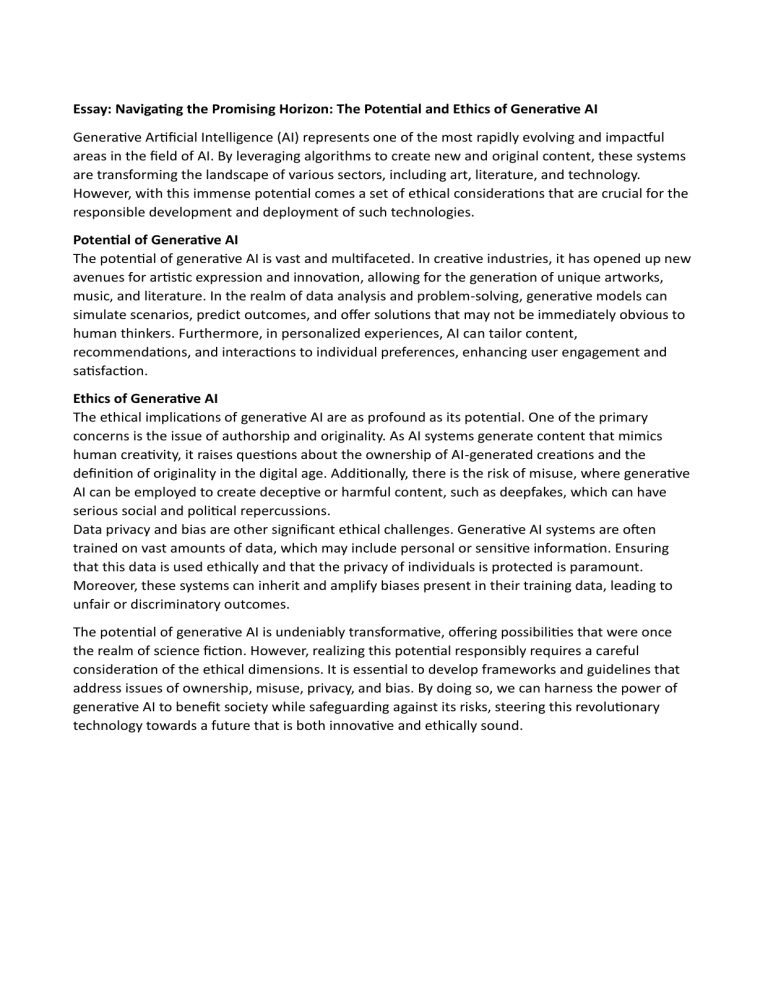
Essay: Navigating the Promising Horizon: The Potential and Ethics of Generative AI Generative Artificial Intelligence (AI) represents one of the most rapidly evolving and impactful areas in the field of AI. By leveraging algorithms to create new and original content, these systems are transforming the landscape of various sectors, including art, literature, and technology. However, with this immense potential comes a set of ethical considerations that are crucial for the responsible development and deployment of such technologies. Potential of Generative AI The potential of generative AI is vast and multifaceted. In creative industries, it has opened up new avenues for artistic expression and innovation, allowing for the generation of unique artworks, music, and literature. In the realm of data analysis and problem-solving, generative models can simulate scenarios, predict outcomes, and offer solutions that may not be immediately obvious to human thinkers. Furthermore, in personalized experiences, AI can tailor content, recommendations, and interactions to individual preferences, enhancing user engagement and satisfaction. Ethics of Generative AI The ethical implications of generative AI are as profound as its potential. One of the primary concerns is the issue of authorship and originality. As AI systems generate content that mimics human creativity, it raises questions about the ownership of AI-generated creations and the definition of originality in the digital age. Additionally, there is the risk of misuse, where generative AI can be employed to create deceptive or harmful content, such as deepfakes, which can have serious social and political repercussions. Data privacy and bias are other significant ethical challenges. Generative AI systems are often trained on vast amounts of data, which may include personal or sensitive information. Ensuring that this data is used ethically and that the privacy of individuals is protected is paramount. Moreover, these systems can inherit and amplify biases present in their training data, leading to unfair or discriminatory outcomes. The potential of generative AI is undeniably transformative, offering possibilities that were once the realm of science fiction. However, realizing this potential responsibly requires a careful consideration of the ethical dimensions. It is essential to develop frameworks and guidelines that address issues of ownership, misuse, privacy, and bias. By doing so, we can harness the power of generative AI to benefit society while safeguarding against its risks, steering this revolutionary technology towards a future that is both innovative and ethically sound.




